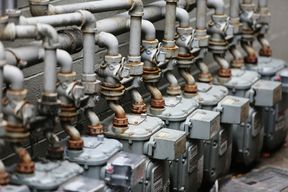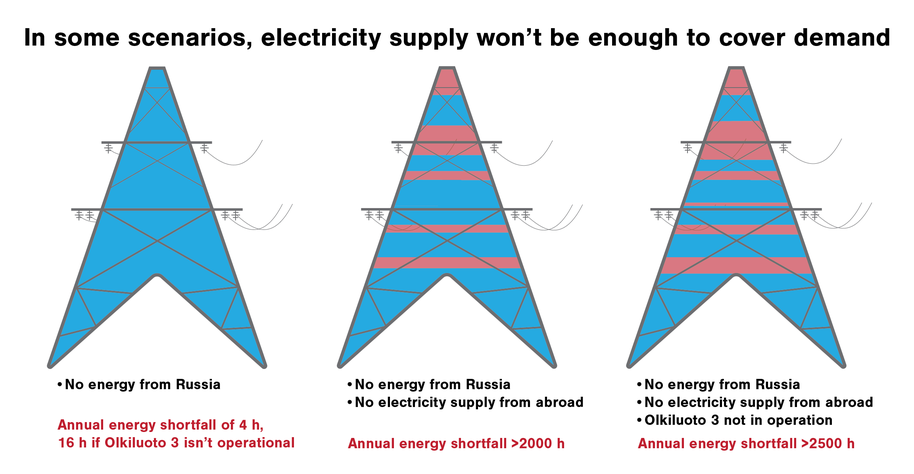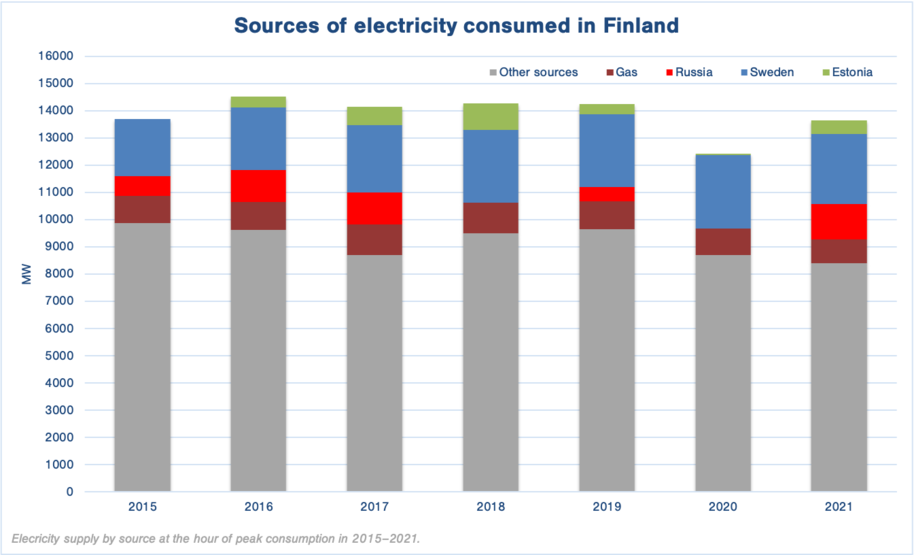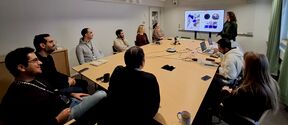Ending energy imports from Russia could cut other electricity imports to Finland – model shows what chain reaction could mean for the security of supply

About 15 percent of the electricity consumed in Finland is either produced by gas imported from Russia or imported as electricity directly from Russia. Now a team of Aalto University researchers of energy systems and the energy economy have created a model for Finnish decision-makers on what the loss of that share would mean for the country’s electricity market and security of supply. The risk analysis, published in Finnish, can be found below.
According to the researchers, the greatest risk stems from a possible chain reaction on the European energy market.
‘If Russian energy no longer makes its way to Finland and Europe, each country will probably want to prioritise their own energy supply. In turn, we could end up in a situation where other neighbouring countries stop exporting energy to us,’ says Matti Liski, Professor of Economics at Aalto University.
Loss of Load Expectation (LOLE) is the technical term used to describe the risk to supply; it refers to the hours in which the production of electricity falls below demand. Under normal conditions, the energy shortfall in Finland is typically less than one hour a year.

The researchers modelled two different scenarios. In the first, imports of both electricity and gas from Russia are cut off but imports from Sweden and the Baltic Countries continue normally. This would cause a loss of load of no more than 16 hours, if the Olkiluoto 3 nuclear power plant is still not in operation.
In the second scenario, imports of electricity and gas from Russia are cut off, and imports from Sweden and the Baltic Countries stop as well. In this scenario the loss of load measure could exceed 2,500 hours, which would place significant pressure on energy supplies in wintertime. The electricity output from Olkiluoto 3 would not significantly alter the big picture in either scenario.
According to the researchers, the first measure to ensure Finland's supply is to prepare a rationing protocol, which is the responsibility of the country’s transmission system operator Fingrid.
Over the short and medium term, there are also other measures that can be taken, for example, compensating consumer prices, delivering subsidies to companies and consumers by taxing revenues, setting a maximum price for carbon dioxide emission allowances, conserving electricity, and quickly taking into use solutions for saving and producing electricity.
The researchers emphasise that rapidly unfolding changes on the electricity market should not be allowed to affect Finland's carbon neutrality goals in the long term.
‘It is important that decisions being made now do not tie our hands for building a sustainable energy system in the future,’ says Aalto University researcher Iivo Vehviläinen.
The researchers also propose a market model for times of crisis to curb the effects of high prices. In the model, the consumer price of electricity would be reduced to better correspond to the average production costs.
‘As the crisis does not affect the cost of nuclear energy, for example, the model would protect consumers and the economy,’ Liski says.
Aalto University President llkka Niemelä emphasises that producing an analysis on a tight schedule requires skills and knowledge in many fields:
‘We can rapidly combine our skills and knowledge in energy and economics. It is important to us to offer society unbiased and up-to-date information also under ever-changing situations.’
Behind the risk analysis are Professor of Economics Matti Liski, researcher Iivo Vehviläinen, Energy Systems Professor Ilkka Keppo, Engineering Physics Professor Peter Lund, Project Director Oskari Nokso-Koivisto, and Sanna Syri, Professor of Energy Efficiency and Systems.

Read more news
Apply to be a guest professor or visiting researcher at the Université Grenoble Alpes
Unite! partner, Université Grenoble Alpes (UGA) has opened a call to host international professors and researchers for short stays.
Floriane presents research findings on denim recycling
On 15 January 2026, Floriane Jacquin, an intern with the Textile Chemistry Group at Aalto University, presented the findings.
Postdoctoral researcher Eloi Moliner makes history as a 5-time award winner
Eloi Moliner is one of the most decorated doctoral researchers in Aalto University's history – we would like to highlight his success and contributions to the field of audio signal processing






